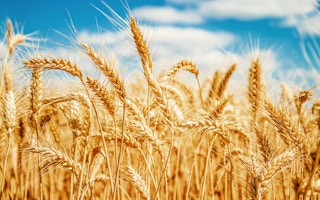In a first-of-its-kind research, scientists have discovered how the quality of our food is going down owing to a rise in carbon dioxide levels.
A field test by a plant scientist from University of California, Davis has demonstrated that elevated levels of carbon dioxide inhibit plants’ assimilation of nitrate into proteins.
“Food quality is declining under the rising levels of atmospheric carbon dioxide that we are experiencing,” said lead author Arnold Bloom, a professor in department of plant sciences.
This is the first study to demonstrate that elevated carbon dioxide inhibits the conversion of nitrate into protein in a field-grown crop, he added.
“
Studies have shown that protein concentrations in the grain of wheat, rice and barley - as well as in potato tubers - decline, on average, by approximately eight per cent under elevated levels of atmospheric carbon dioxide
The assimilation, or processing, of nitrogen plays a vital role in the plant’s growth and productivity. It is crucial in case of food crops as plants use nitrogen to produce the proteins that are vital for human nutrition.
Wheat, in particular, provides nearly one-fourth of all protein in the global human diet.
Many previous laboratory studies had demonstrated that elevated levels of atmospheric carbon dioxide inhibited nitrate assimilation in the leaves of grain and non-legume plants. However, there had been no verification of this relationship in field-grown plants.
To observe the response of wheat to different levels of carbon dioxide, the researchers examined samples of wheat in the Maricopa Agricultural Center near Phoenix, Arizona.
The study reveals a fall in the amount of nitrogen in crops.
“These field results are consistent with findings from previous laboratory studies that showed that there are several physiological mechanisms responsible for carbon dioxide’s inhibition of nitrate assimilation in leaves,” Bloom stressed.
Other studies have shown that protein concentrations in the grain of wheat, rice and barley - as well as in potato tubers - decline, on average, by approximately eight per cent under elevated levels of atmospheric carbon dioxide.
The report was published in the journal Nature Climate Change.










